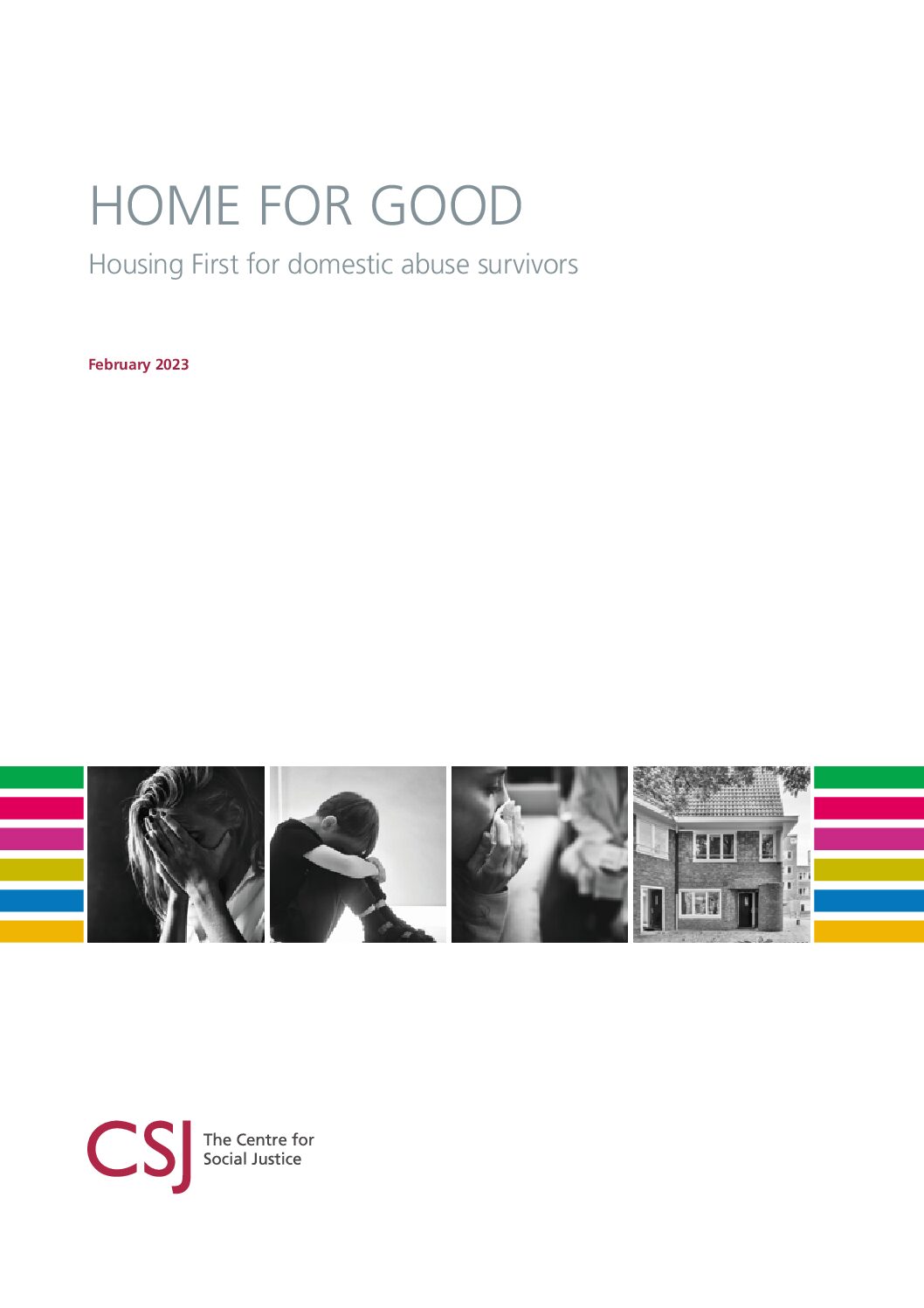The number of people forced into homelessness by an abusive or violent partner has surged by almost a fifth since the pandemic.
According to the Department for Levelling Up, Housing and Communities between July and September of 2022, 6,700 households were accepted as homeless by local councils because of domestic abuse, up 19.6 per cent from the 5,600 in the third quarter of 2020.
Domestic abuse has become the second biggest driver of homelessness, despite the Domestic Abuse Act of 2021.
The CSJ is determined to stop this social injustice.
We propose to adapt the successful Housing First pilots to meet the needs of this vulnerable group. We recommend that funds from the £200m (as of yet unallocated) that government is investing in its Single Homelessness Accommodation Programme (SHAP), be invested in housing and wrap around support for survivors of domestic abuse and their children.
In investing in a Housing First model that focuses on domestic abuse survivors, DLUHC should demand that Local Authorities choose partnerships made up of a local housing association – their experience of homeless individuals and longer-term tenancy makes them ideal; and, as delivery partner, a grassroot charity or local voluntary group, whose trusted presence in the community will enable more survivors of domestic abuse to come forward.
The CSJ has calculated that £ 1,451,000 would cover two years’ support for 50 survivors and their children, as well as a community-wide information campaign and monitoring and evaluation.
Positive results will incentivise other councils to adopt our approach.
Our new programme would aim to:
- Conduct A/B testing to show that grassroot charities and voluntary organisations are best placed to deliver support to domestic abuse survivors at risk of, or affected by, homelessness. More survivors will report their abuse, keep their children, and quickly recover in the locality where the Housing First programme is delivered by a charity or voluntary organisation than in a similar locality where the homelessness programme is delivered by statutory services.
- Include monitoring and evaluation: an outcomes framework will measure tenancy sustainment, wellbeing outcomes, including stabilisation and improvement of mental and physical health, as well as prevention/elimination of domestic abuse. These measures will enable the programme to demonstrate cost savings.
The Government should accept the Domestic Abuse Commissioner recommendation for the Ministry of Justice to introduce a duty on local commissioners to collaborate in the commissioning of specialist domestic abuse services, conduct joint strategic needs assessments, and this duty should be accompanied by a new duty on central government to provide funding to adequately meet this need. This should make use of the opportunity afforded by the upcoming Victims’ Bill.

